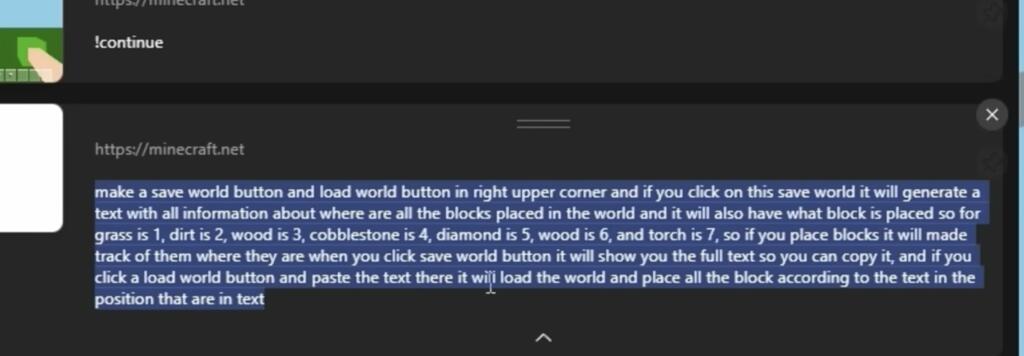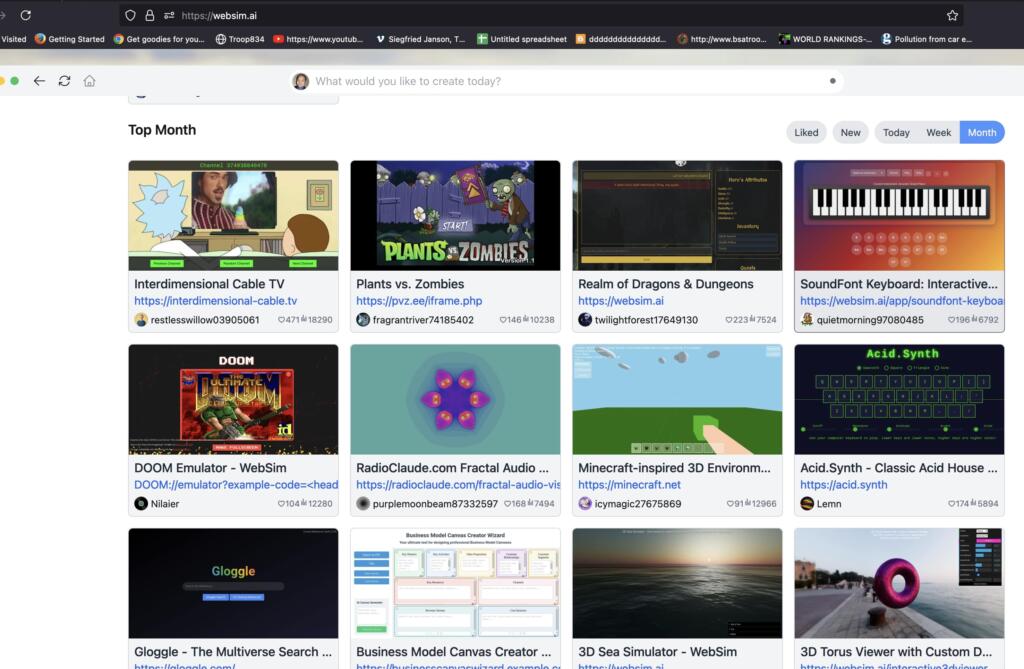Websim.ai is an AI-powered platform that allows users to generate and explore a simulated version of the internet. It uses advanced AI models like Claude 3.5 Sonnet and GPT-4o to create interactive websites, visualizations, and functional code in response to user prompts. Users can sign in with their Google or Discord accounts and input prompts or URLs to generate web pages. The platform also offers features for editing, sharing, and downloading the generated content.
You could create games like classic snake in seconds and websites.




Brian Wang is a Futurist Thought Leader and a popular Science blogger with 1 million readers per month. His blog Nextbigfuture.com is ranked #1 Science News Blog. It covers many disruptive technology and trends including Space, Robotics, Artificial Intelligence, Medicine, Anti-aging Biotechnology, and Nanotechnology.
Known for identifying cutting edge technologies, he is currently a Co-Founder of a startup and fundraiser for high potential early-stage companies. He is the Head of Research for Allocations for deep technology investments and an Angel Investor at Space Angels.
A frequent speaker at corporations, he has been a TEDx speaker, a Singularity University speaker and guest at numerous interviews for radio and podcasts. He is open to public speaking and advising engagements.


Let that sink in: the web intelligences will create the software and content suiting your every whim.
Honestly this is neatly outside of the classical view of golden and silver age science fiction, with computers doing computer-ish things we now take for granted or serving as calculators for spaceships boldly going where nobody has gone before. These things are verging on the singularitarian.
Same will apply for any intellectual endeavor. Science, technology, design, art. From idea to project, implementation and tests/publication on a single day. Maybe a single prompt.
Yeah, work tends to expand and turn into the intangibles. But there is a point where these things can do the full spectrum of what any purposeful job includes.
The better the models get, the more realistic the web simulation.
In the short-ish term, they will be able to simulate news sites, social networks and blogs with a fake audience too. One that only publishes what you want to hear, applauds your every comment if you wish, or one that is more belligerent, whatever floats your boat.
But eventually they will be able to generate software or nearly arbitrary complexity on the fly. Games, office apps, etc. Plus movies and series. And also share them with your company/clique.
The Internet will be a cacophony of soliloquies then. With experiences that are only seen by very few or one, and have very little in common between people. Like today, but worse.